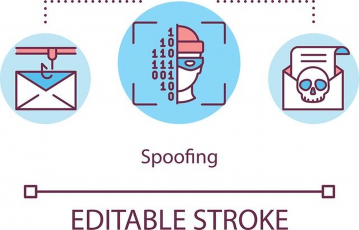The Tor browser is a particular internet browser that enables users to surf the world wide web anonymously. It’s also a gateway into the dark web.
This browser works over a global network composed of servers maintained by volunteers designed for private communications and web browsing.
Tor browsing quick guide
So you’d like to get started with Tor browsing? You can begin by following the next few steps:
- Choose a good VPN service that can keep your traffic encrypted (no, a free VPN won’t do).
- Launch your browser and point it toward the Tor project website.
- Find the download link for the Tor browser version for your operating system or platform.
- Download and install the browser.
- Launch the Tor browser and connect to the Tor network.
There you go. Now you can browse every corner of the web and beyond using the Tor browser. And yes, you can also browse your regular everyday websites, but those servers won’t know it’s you. Have you not chosen a VPN yet? Well, try NordVPN.
It’s a top-notch VPN network, particularly well suited for Tor browsing. NordVPN is our preferred vendor for every VPN-related job we’ve ever needed.
Suppose digital safety, privacy, and anonymity are your cup of tea. In that case, the chances are that you are already aware of Tor. Tor is one of the leading proponents for privacy in the digital world today as protocols go. Moreover, many users consider Tor to be the cornerstone of internet freedom.
But what is Tor, precisely? How does Tor work? Why should you become a Tor browser user? How does the Tor browser differ from other privacy tools such as VPNs or proxy servers? If one or more of those questions are on your mind, we have great news for you: we will give you all the answers in this article and even more!
Precautions to take before you start using Tor
If you want an anonymous and free online browsing experience, Tor is your friend. As you download and install your brand-new toy, you’ll be excited to explore and experiment with all the new possibilities that come along with it.
That’s understandable. But all these possibilities come at a cost, and some of them even put you at significant risk. Take the dark web, for example. It’s a unique part of the internet for sure, and Tor will grant you access to it. However, you shouldn’t surf around the dark web just because you suddenly can.
If you don’t know precisely what you’ll get into by loading those dark web sites, then keep away. Remember that you can’t undo some deeds. We want you to keep your sanity about yourself and use Tor to enhance your digital life. That is why before sharing more information about Tor, we will tell you a few things to do beforehand.
First, you should always ensure to remain safe while browsing the web through the Tor protocol — which is particularly important in the case of visits to the dark web.
So, start by checking Tor’s security settings. Granted, encryption in Tor is exceedingly robust, safe, and reliable. However, when it comes to security issues, nothing is ever so good that you can’t improve it. And that’s what using Tor’s security settings to your advantage will do for you.
The next step should be obvious and go without saying, but we’ll write it anyway: never visit websites or click on hyperlinks that you don’t trust. Tor is excellent but not magic. So, you can still put yourself in danger using Tor if you try hard enough.
Last but not least, use a VPN. It has to be a good service with reliable and fast connection speeds, a no-logs policy, and known to be safe. That means that free VPNs are out of the question; you have to pay for your VPN if you want to stay safe.
Using a VPN along with Tor to stay safe online
A Virtual Private Network worth the name must perform at least two fundamental tasks for you. First, it must mask your actual IP address and show the world an IP address from its network as yours. Second, it must encrypt all your traffic, incoming and outgoing, making it appear digital gibberish to any third party or external observer.
Of course, many VPN vendors offer additional features. But VPNs with these two features make you safer and more anonymous on the internet. If you’d like to pick a VPN that’s particularly well-suited for Tor browsing, then NordVPN is the way to go.
That’s because of the Onion over VPN unique feature in NordVPN, which gives you the best of both worlds. You can enjoy every advantage of The Onion Router (Tor) in combination with one of the best VPN tunnels in the industry.
What does the Tor browser do?
As it’s happened with many of the now most common technologies on the internet — including the internet itself — the Onion Router (TOR) came to life as a US Navy project aimed at providing anonymous online communications among military personnel.
Nowadays, TOR is a free, open-source project maintained by a group of volunteers. The project’s focus is to keep the TOR browser updated and able to keep doing its job correctly. It also develops a handful of other privacy tools.
We already touched on how the TOR browser significantly enhances your online privacy — and even your safety, to some degree. The Tor network is a worldwide labyrinth of servers maintained by volunteers that serve browser users.
When browsing the web through Tor, your data travels through a few nodes in the Tor network. Each node uses military-grade encryption on your data. The standard procedure uses three nodes called “guard,” “relay,” and “exit” nodes. Your browser connects you to the guard, which then sends your traffic to the relay. This node then sends it to the exit node, which is the one that reaches the website you want.
The server your data reaches sees your traffic originating from the exit node. And that’s why tracking Tor users is exceedingly difficult, as you have to break three encryptions and follow at least four different network links.
So how do you join the Tor network and take advantage of its security features? You just download the Tor browser that’s appropriate for your operating system, launch it, and you’re good to go.
From then on, all the browsing you do with this browser will be encrypted and anonymized, courtesy of the Tor protocols and network. (Tor browser is basically a highly customized version of Mozilla Firefox. So you’ll likely find yourself familiar with most of its features and functions)
The added privacy and security, of course, come at a price. Browsing the web with Tor is a much slower experience than you are used to from your regular, open connection. This is because encryption takes time and computing power, and your data traveling through three Tor servers (at least), also takes time.
In addition, your data in Tor has to go a long way, if you will, so everything becomes noticeably slower. And no, you’ll never see a streaming video on Tor, at least not one that you will enjoy.
What are the uses of Tor?

As mentioned earlier, Tor’s original intent was to provide frictionless but secure online communication for military users. However, the internet itself was a military project in the beginning. But it’s now available to everyone globally, and so is Tor. The Tor browser and network can be handy for people particularly concerned about their privacy or those who need online anonymity.
For instance, journalists and political activists can find themselves doing fair work that could have them facing prosecution or corporate or governmental hostility. Their anonymity is central to their work and personal safety. This kind of work frequently happens in repressive countries with little or no regard for human rights. Those who oppose the powers that be can face all sorts of punishments.
However, confidentiality and security can be crucial in some cases, even in the freer world. For instance, journalists know that their sources must remain protected at all times, and Tor can help them with that. The Tor infrastructure enables journalistic sources to deliver sensitive information through the Tor browser without worrying about their anonymity or safety.
So Tor is convenient for information suppliers as far as we’ve seen so far. However, information consumers also find benefits in Tor’s technology. For example, browsing the web on Tor enables you to bypass geo-restricted content and censorship blocklists, which are common in some of the world’s jurisdictions.
So, this way, Tor grants you access to information and resources otherwise unavailable. The dark web is an example of this, as you can’t browse around it in standard browsers.
Whistle-blowers are also a selected group of relatively well-known individuals as Tor users. These people are the Robin Hoods of the digital age, challenging the world’s most potent for the sake of a noble cause, often taking considerable personal and professional risks along the way.
But every coin has two sides, of course. So, if the privacy and anonymity that the Tor platform affords its users can be a tool to improve the world, then digital criminals undeniably have a use for Tor too. That’s especially true when it comes to accessing the dark web, which is known for criminal activities.
The Silk Road anonymous marketplace is probably the poster child for the dark web and suspicious activities, including the international illicit trade in firearms, drugs, and even the assassinations market.
So yes, as a Tor user, you’ll be part of a club that includes some of the world’s heroes (activists, investigative journalists, and whistle-blowers) but also some of the most questionable people you haven’t imagined to exist. The world’s most tech-savvy bad guys also use Tor to prevent getting caught by their respective authorities.
And there’s another use for Tor that has nothing to do with browsing hidden websites or public websites anonymously. Instead, it’s hosting sites that only Tor users can see.
That limits your potential audience to the most privacy-aware sector of the internet and far away from the reach of the world’s governments — but also out of the reach of Google, Bing, and every search engine in the world. So the websites you create and host in this way become part of the dark web, whatever information they store.
Is Tor legal?
Tor is 100% legal in most of the world’s countries, particularly in the West. But this tool, like any other, can be a perfectly legal resource that people may use for illegal purposes because of the anonymity it offers.
The Tor browser or the Tor servers cannot transform the quality of any activity. Therefore, anything illegal done with Tor is still as unlawful as it would be otherwise. Since we do not condone illegal activities at all, we strongly urge you to keep your use of the Tor network legal. Also, we don’t want you to have a false sense of security.
Tor is an excellent privacy and anonymity tool. But it’s not perfect or foolproof, and you shouldn’t think of it as a get-out-of-jail-free card because it’s not.
Privacy and security limitations in Tor
While there is no doubt about Tor’s helpfulness and how it increases the privacy and anonymity of its users (at the cost of functionality, let’s not forget), it’s not the privacy silver bullet that some reviewers would like to believe.
Keep this in mind: no solution can guarantee 100% efficiency in digital security issues, no matter how sophisticated or up-to-date it can be. That’s the nature of the beast, and it means that there is always a risk present.
The best practices and technologies can render that risk minimal and negligible, but it will always remain there. And Tor is no exception. Anonymity in Tor can’t be guaranteed at all. Granted, cracking the Tor system is no small feat, but it’s been done in the past.
When the Tor crack came to light, the developing team stressed that it worked against only a handful of individual browsers and didn’t breach the system as a whole or the server network. So the issue wasn’t so significant, and most users can keep their peace of mind, right? Well, yes, your average Tor user does not need to worry for sure.
However, the episode shows that Tor has its limitations and that a team of determined experts can beat it. Moreover, if the phrase “that will never happen to me” comes to your mind, be careful. Those are the most frequent famous last words in the security business.
Most of the world’s governments do not have the technological expertise to expose user identity, even when they want to. That’s why they recruit ISPs. It usually happens only on select occasions when strong suspicions arise. But it happens, and official agencies can use this method to go after any given website or individual.
So what can you do? Just keep your digital life within the limits of the law, and you should be fine. But remember, merely using the Tor browser, which is the gateway to the dark web, can make your domestic authorities suspicious about your behavior.
Privacy versus security
Privacy has become a hot topic over the last few years, and too many articles use the words “security” and “privacy” as equivalent notions that are interchangeable. Unfortunately, they are not, and you need to understand the difference if you want to protect either successfully.
Tor will not ensure that no cyberattack will ever affect you or that cybercriminals won’t get to you just because you use the Tor browser. The Tor network is so hard to hack that it would need a cosmic accident to break down. Its robustness is simply exceptional because it’s an open-source project constantly tested. But that’s the network. Your individual browser is a different proposition, and hacking it is not such a big deal.
If your ISP is willing to help an attacker, even a simple man-in-the-middle type of attack is enough. The Tor developing team is well-aware of this reality and is thus constantly improving its technology to remain safe. But it’s an ongoing process in which there will never be any final word.
Always use the most recent version if you intend to join the Tor community.
Tor is a robust technology that keeps evolving to meet the most current challenges in privacy and security. Still, you will only benefit from those advances if you always keep your browser up to date.
Why the Tor browser is not 100% anonymous
As web browsing goes, the Tor Browser is quite possible the best option available for anonymous browsing. But it’s not perfect. There is an arms race going on in the digital world right now.
The Tor team and other researchers and developers are striving hard to make Tor stronger and develop new and improved privacy tools than Tor. On the other hand, you have the world’s governments working just as hard to prevent access to Tor (China has succeeded already) and break it.
If you want to de-anonymize a Tor Browser, the best strategy is to hack it. The FBI knows that, which is why it’s exactly what it’s done in several criminal cases. Also, Rule 41, courtesy of US Chief Justice Roberts of the Supreme Court, allows the FBI to hack massive numbers of systems anywhere with a single warrant.
This kind of hacking is of concern to everybody because, even if law enforcement is involved, this type of generalized fishing exercise ends up catching innocents in its nets.
The lack of total perfection in Tor anonymity is no reason to avoid it, though. There are no perfect solutions in security, and Tor is the best in its category.
Tor: Should you use it?
The run-of-the-mill web user probably won’t find the increased anonymity Tor offers enough incentive to adopt it. The significant loss in navigation speeds adds to that problem.
We respect that if you feel like a potential target for governmental surveillance. But we would still invite you to be as realistic as possible. Online surveillance is resource-intensive; it costs money, time, competent personnel, and power.
Consequently, most of the world’s governments can’t afford it, and even those who can are not willing to spend so much effort spying on every single of their taxpayers. It’s inefficient, and it renders minimal results.
So instead, they pick and choose the people whose online behavior is already suspicious. So, if your internet use is all about watching viral Youtube videos, ordering pizza for dinner, and things of the sort, using Tor is pointless.
Tor browser alternatives
The Tor browser is hands down the most effective means to access the dark web. However, its defiant access to the barred online world also annoys many, attracting negative attention and bans in many regions.
But thankfully, some alternative sources exist today that offer dark web browsing with comparable features. So, if, at any time, you face trouble using the tor browser, try any of these Tor substitutes to access the dark web.
1. Mozilla Firefox
The popular privacy-oriented browser Mozilla Firefox also allows access to the dark web. However, you need to tweak the browser settings for this purpose. Here’s how to do it.
- Type “about:config” in the Firefox browser’s address bar and press the “Enter” button.
- Find the “network.dns.blockDotOnion” setting and set it to “False.”
- Restart the browser to enable this feature.
The next time you launch your browser, you could also access .onion websites via Firefox. First, however, make sure to secure your device with a robust VPN, and an antivirus, enable HTTPS-only browsing via Firefox settings, and block JavaScript to avoid any malicious attacks.
2. Subgraph OS
It’s not a typical web browser but a complete operating system offering a privacy-oriented web browser for accessing the dark web. Subgraph OS is entirely open-source and has garnered appreciation from Edward Snowden for its robust privacy features. In addition, the web browser uses Tor’s source code, so you might not face trouble using it.
3. Whonix
This anonymous web browser also uses Tor’s source code, offering a similar user experience. However, what makes it great for privacy-savvy users is its unique features. For instance, it hides the device’s IP address via a workstation virtual machine. Also, the developers believe that the browser can even prevent IP exposure to malware with root privileges.
Nonetheless, you may not use it singly, as Whonix also comes integrated with a dedicated operating system, “Whonix.”
4. Invisible Internet Project (I2P)
I2P isn’t an alternative to the Tor browser but rather the Tor project in its entirety. The I2P project encrypts all connections and allows secure access to the regular and the dark web alike. Besides offering dark web access, I2P provides a safe, decentralized file-sharing feature via the Tahoe-LAFS plugin.
Though it’s a wonderful alternative to Tor, it might overwhelm new users with its arduous setup and regular features. So, unless you’re a professional and know the dark web inside out, it’s better to stick to Tor instead of using I2P.
Virtual Private Networks (VPNs) as alternatives to Tor
Tor is effective at anonymizing the web activities you perform using the Tor browser. However, everything else you do online using other software gets no protection from Tor at all. For example, suppose you want to have every single one of your online activities encrypted and anonymized (your BitTorrent client, every browser, every app on your phone or tablet, or anything else you can think about).
In that case, the solution you need is a VPN. A VPN will be particularly helpful when you want to have a safe internet connection under the hostile conditions you find in public WiFi hotspots such as hotels, restaurants, and airports.
A VPN service offers several advantages beyond what Tor can give you. First, VPNs are windows to the internet free of restrictions. Second, they enable you to work around geographical censorship and geo-locational restrictions (such as the ones you find on Netflix or BBC iPlayer).
Third, a VPN encrypts the traffic that goes in and out of your device. That means all the traffic, not just what comes in and out of a specific browser within the system. So, your browsing and downloads are utterly anonymous. Fourth, a high-quality VPN network (and there’s no reason for any user to pick an inferior one) will give you download and upload speeds far above what Tor can handle.
That last feature alone opens up a world of possibilities beyond Tor’s reach, such as video streaming, BitTorrent, gaming, and any bandwidth-intensive task.
Is the Tor browser for you?
In the end, even the best digital technology is relevant to you only if you can use it. So should you give Tor a try? It depends on your needs, preferences, and digital lifestyle. Tor is free, user-friendly, and effective as a privacy-protective measure. It gives you the option to see the dark web, and it features several other options that help enhance your safety online.
However, it’s also exceedingly slow, and if it protects you from some dangers, it opens you up to a set of new risks. In addition, speeds are a serious issue with Tor. If your internet use includes video streaming, P2P networks, gaming, video calls, and other similar or related tasks, then a VPN is the better option for you.
On this website, we’ve done plenty of guides reviewing all the best VPN services in the market for different purposes, even comparing them so that you don’t have to do a lot of research before choosing one depending on your country and the tasks you hope to do with them.
Tor and domestic blockings
There are jurisdictions globally with little regard for user privacy or even a downright hostile stance against it. China, Iran, and Russia are among the most notorious offenders. These countries like to keep a closer eye on their citizens’ online activities, and they do not like the technologies that can thwart their efforts.
Consequently, they try to keep VPNs blocked, with varying degrees of success depending on the country and the VPN provider. The UAE is also hostile towards VPNs, but, in this case, it’s not because of political control or intelligence gathering but for economic reasons. The countries in question do not like Tor any better than VPNs, so they also try to block it.
Their success is even lower with Tor because blocking it is so much more complicated than blocking VPNs. Blocking an entire VPN network is all about just blocklisting a given set of IP addresses, at least in principle (this, however, is much easier said than done).
Blocking Tor needs the identification and exclusion of the nodes in the Tor network, which is more complex because the Tor network is more flexible and elusive than a VPN network.
China has done the work, though. It’s managed to block every access point in the Tor network, one at a time. It’s an extensive hard labor to do, but they’ve managed it, so the China population can’t use Tor for the most part. Fortunately for many users, many good VPNs work correctly if you’re inside China despite the government’s best efforts to neutralize them.
Venezuela, Ethiopia, Russia, and Iran are also working to block Tor. Venezuela’s approach includes external nodes known as “Tor-bridges” and not only blocking direct connections to the network.
Only time will tell how successful those other countries will be in their war against Tor. The Tor developing team is constantly working to improve the technology, but the government agencies are also working to keep up with it.
However, suppose you are in any of those openly hostile jurisdictions. In that case, you need to be aware that losing your access to Tor is a risk that could become manifest any day. Hence, your best strategy is to be mindful of the alternatives — it could also never happen, but you can’t possibly know beforehand.
How is Tor different from a proxy server?
Besides VPNs and Tor, a proxy server is another option for increased online security. However, the thing you need to understand about proxy servers is that they are usually helpful only in a minimal set of situations — access to The Pirate Bay would be a good example.
Proxies are not as efficient or secure as Tor and VPNs can be. However, they still generate some interest from users, and they often ask the question of how is Tor different from proxy servers? So let’s see the information you need to know the answer.
What do proxy servers do?
The common denominator among proxy servers, VPNs, and Tor is that they all rely on re-routing your internet traffic through a server within their respective networks. So, instead of your data going directly from your device to the destination server, it first hits a different server that stands “in the middle,” so to speak (three servers, in the case of Tor, one or two in the case of a VPN, depending on your preferences).
According to the owner’s will, this “middle” server is the proxy at your disposal. The operational idea at this point is pretty simple: every user connected to this server sends it its traffic. Then, the server sends it to the destination nodes on the internet, making all those destination servers “think” that the traffic originates from the proxy.
VPNs and Tor: What makes them better than proxies?
One crucial reason supporting the popularity of proxy servers is that they’re often free of charge. So they do offer you a limited enhancement of online security and anonymity without charging you any fees. But that shouldn’t persuade you that proxies are the one thing that can solve all of your online problems.
Proxy servers seldom encrypt your traffic, to begin with. Moreover, free proxies are often unreliable, which you don’t see in the best VPN networks.
Another disadvantage of proxy servers is that the server sees everything you do online to the last detail. Nothing is stopping a server like those from keeping a complete log on its user activity, and that could put you at the center of a nightmare scenario you don’t want to imagine — and this is not a merely theoretical possibility either; it’s the precise business model that keeps most free VPN services profitable without charging users any fees.
Since the proxy will know everything you do online, you should implicitly choose the one you can trust if you still intend to use one. The problem is, how do you know which is the one you can trust indeed?
Solving this trust issue about proxy servers requires you to know the owners or do a great deal of research to find out what privacy policy each service follows and whether or not it’s been involved in court cases where it has upheld its position. And all this work will still give you a service in which the levels of privacy, security, and anonymity are way below what you can get from either Tor or a VPN.
So this is our advice for you on this issue: just keep away from proxies. You’ll have a hard time finding a perfect one, and once you do, it’s not worth it anyway. Instead, go for the VPN option.
Installing Tor
So you’re sure you want to get the Tor browser for your device? We’re glad, and you’ll find the installation process to be straightforward. You’ll be up and running in a few minutes if you follow these steps.
- Launch your current, ideally a secure browser, and point it towards the Tor website. Find the “Download” button on the top right corner of the page. Click on it.
- You are now on the download page. The icons available tell you the options you have vis-a-vis platforms and operating systems: Android, Linux, macOS, and Windows. You can also choose a language other than English for your download. Pick the language and operating system of your choice and click on it.
- Your browser will download a file to your computer. Open this file to start with the installation. Choose a language, then click on “OK.”
- You are now in the browser setup. Choose a destination folder (or just use the default option) and click on “Install.”
- Don’t let the installation process just go by without paying attention. You can choose Tor to start automatically while the installation is going on. Moreover, suppose you hail from Turkey, China, or Egypt. In that case, you should hit on “Configure” first to configure your browser according to your particular needs, as you are in a country that is actively hostile towards Tor.
- So now you’re done with the installation and configuration. Click on “Connect.” Your Tor browser is then launched, and you can browse around the web to your liking.
Other Tor projects
While the Tor browser is Tor’s flagship project, the project has a few other exciting things in the works. They are all related to digital privacy.
The Tor project (which is how the whole team is known) is a group of crusaders for online privacy, freedom, and anonymity. They’re constantly pushing forward to improve the protection of internet users around the globe. Let’s see some of the other work the team is doing.
Orbot
Orbot is an Android app that provides a free proxy service. It uses the same Tor network as a proxy network to carry around your traffic through the web.
If you’ve read this far, you probably already noticed that we’re not big fans of most free privacy services or technologies. The projects that come out of Tor are an exception. This is a free proxy we would use.
OONI
The Open Observatory of Network Interference (OONI) is another Tor team project focused on detecting online restrictions. It keeps track of internet censorship worldwide.
The project began in 2012, and since then, it’s been writing free software that detects online interference. The aim is purely informative. By that, we mean that no app has resulted from OONI that bypasses or circumvents the online blocks you can find in some countries.
Instead, this software just provides you with a digital map of sorts that tells you where the significant obstacles are to internet freedom. The project’s findings are exceedingly interesting, and you can have a look at them at the OONI website.
Tor Messenger
The Tor Messenger project aimed to be a chat program that you could integrate into Google Talk, Facebook Messenger, and Twitter to chat online. The added value was that it rendered the chat data anonymous and kept no logs. So with Tor Messenger, you could have something like a Whatsapp that’s not spying on you all the time on behalf of Mr. Zuckerberg.
Unfortunately, while the software is still available, the project stopped in April 2018, so it’s not updated anymore. As we stated earlier in this guide, keeping up with the updates is critical in the privacy protection process. Since there are no updates available for Tor Messenger anymore, we can only suggest that you keep away from it.
Conclusion
Few projects in the world uphold and support the cause of online privacy as Tor does. The browser gives you almost total freedom to visit any website, including those on the dark web, with a high degree of anonymity to protect you.
The protection that the Tor browser affords you is excellent but limited because it’s limited exclusively to the activities you can perform through the Tor browser itself and because the loss in speeds also limits the tasks you can perform in it comfortably. In this regard, a VPN is always a better choice because the speeds are much higher and because a VPN protects all of the traffic in and out of your device.
So if you don’t have a VPN or can’t afford one for the time being (never use free VPNs), Tor is a good option.
Public WiFi hotspots have been all the rage for years now. They’re popular in coffee shops, and they’re unavoidable if you’re traveling and need to be online at the airport or your hotel. Unfortunately, hackers love these hotspots even more than teenagers. That’s because these are places where they can get a maximum amount of free “confidential” information for unsuspecting users using an unprotected network with minimal effort.
There’s no denying the practicality of public WiFi services, but you must remember that they are extremely dangerous. Whenever you’re using one of these WiFi connections, you must have a VPN or, at least, be using Tor.
There’s another catch in using the Tor browser. Because it’s the gateway to the dark web, it has all the negative implications. Therefore, while using this browser is harmless, the authorities regard it as a suspicious thing to do, a red flag of sorts.
So if you’re opting for the Tor browser, don’t be overconfident. Don’t indulge in any unnecessary dangers. And make sure you’re protected against malware and other malicious software.
Also, if you’re going to take your security and anonymity seriously, use your Tor browser in tandem with a good VPN. In this way, you will have all the bases covered. In this regard, the best possible VPN to have along with Tor is NordVPN because it has a feature designed expressly for that purpose.
So yes, the Tor browser is excellent. It improves your privacy, your security, and your anonymity. But it isn’t a perfect solution, even in an industry in which perfect solutions are non-existing.
In this context, you will profit from understanding this technology as best as you can so that you can know its strengths and weaknesses. A good rule to keep your privacy secure is to use the right tool for the right task. If you know your tools in depth, you won’t fail.
Now you know all the fundamentals about Tor, how it compares to VPNs and proxies, and what are its best advantages. So go on, make an informed choice, and, above all, stay safe!
FAQs
The Onion Router is a worldwide network of servers provided by volunteers for users of the Tor browser who want to browse the web with the highest possible degree of anonymity.
Tor enhances privacy and anonymity by routing a browser’s internet traffic through a dedicated network of servers located around the globe. A by-product of the system’s functionality is that it can beat censorship and increase privacy and anonymity. Thus, the Tor browser affords anonymity and safety for journalists, political activists, whistle-blowers, journalistic sources, and other actors who are trying to fight the good fight against a hostile government or in a dangerous environment. Another use for the Tor browser is browsing the dark web, which is not always as edification as the use case in the previous paragraph, but it’s a use for the technology, nevertheless.
The Tor browser sends your traffic through three nodes within the Tor network. At each node, the traffic is decrypted, encrypted again, the previous IP address is masked, and then the node sends the traffic to the next node or the destination server. This elaborated process makes it practically impossible to trace any traffic to its original source.
You can get the Tor browser easily from the Tor website. It’s free.
Yes, there are a few. The most apparent one is that internet speeds are much lower in the Tor browser because of the longer path the data has to travel and the many layers of encryption. Another limitation of the Tor technology is that it only protects the information that goes in and out of the browser itself. In contrast, all the rest of the traffic generated by other browsers or applications remains open.
No. Any external observer will only be able to see that you’re connecting to a node in the Tor network.
There are versions of the Tor Browser ready for use in Linux, macOS, Linux, and Android. Unfortunately, there is no official iOS version so far, but you can try the Onion Browser in that case.
No, you can’t. The unfortunate fact is that total anonymity remains the holy grail of digital security — no technology can achieve it. Also, never forget that the Tor browser only protects the data through the browser itself. Everything else in your device remains un-anonimized, unencrypted, and will show your actual IP address as its origin. With all that being said, the level of anonymity you can have with the Tor browser is the best for a single app. Additional tweaking on your part of the browser’s configuration will also help you be even more anonymous.
Every new add-on or browser extension you install in your Tor browser weakens its ability to keep you safe and anonymous online. The Tor browser was not designed with extensions and additional software in mind, so while you can indeed add them if you want, how they will interact with Tor is unpredictable, and the chances are that they will end up beating the purpose of Tor itself, which is anonymity and security. Also, if you customize your browser, you’ll be creating a more distinctive “browsing fingertip” for the servers you visit. That alone will make it pointless to use Tor because if your fingerprint is unique enough, you will become identifiable even through Tor.
Yes, you can indeed! The Torrent Project website has a list of organizations that run Tor relays (servers), and some of them are happy to accept donatives. PrivacySavvy donates to such organizations from time to time, so we encourage our readers to do so too.
You can indeed. Most experts will tell you that it’s overkill and that if you have a good VPN provider, even using Tor doesn’t add any value to your service, except for browsing the dark web.






